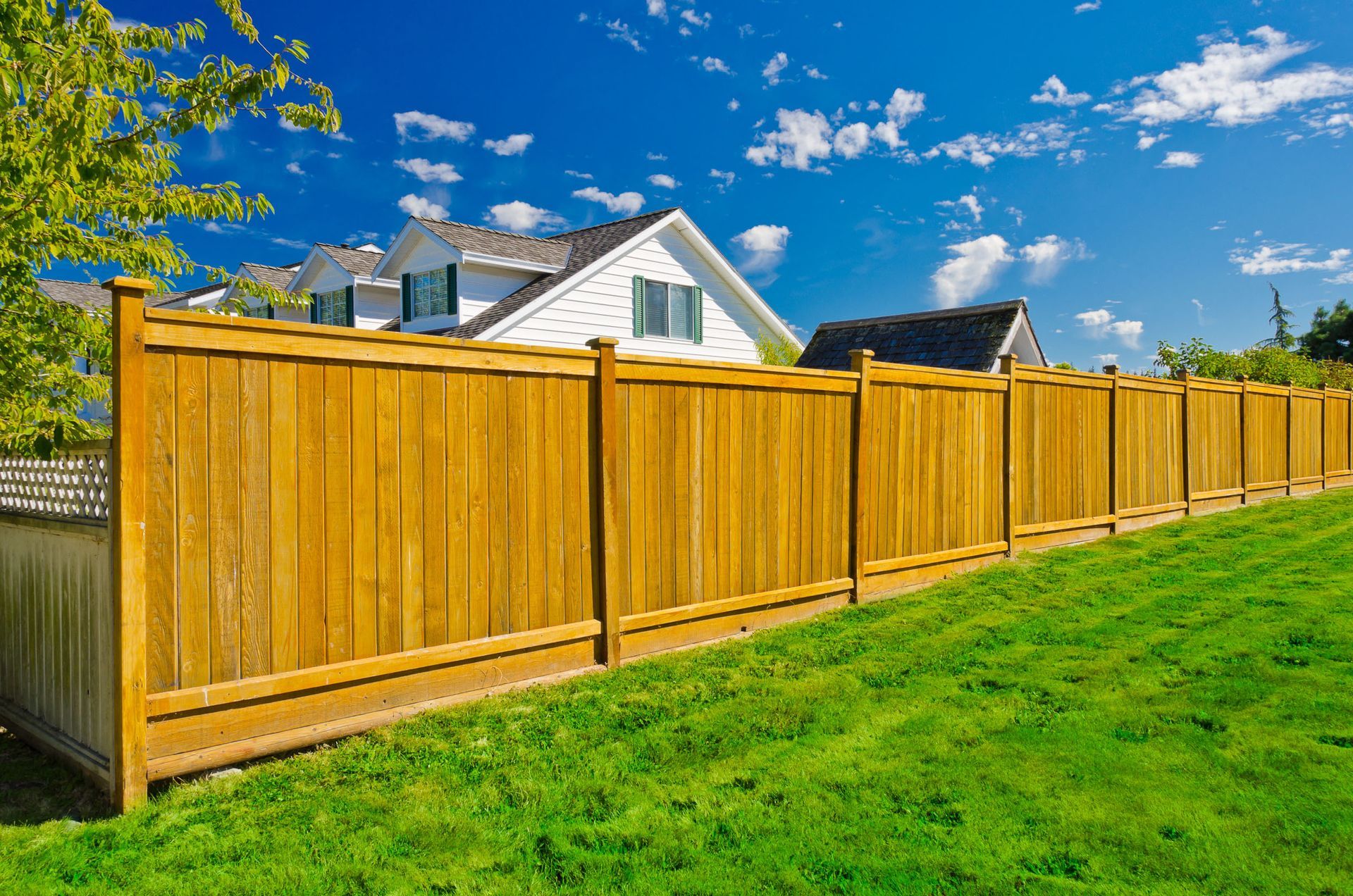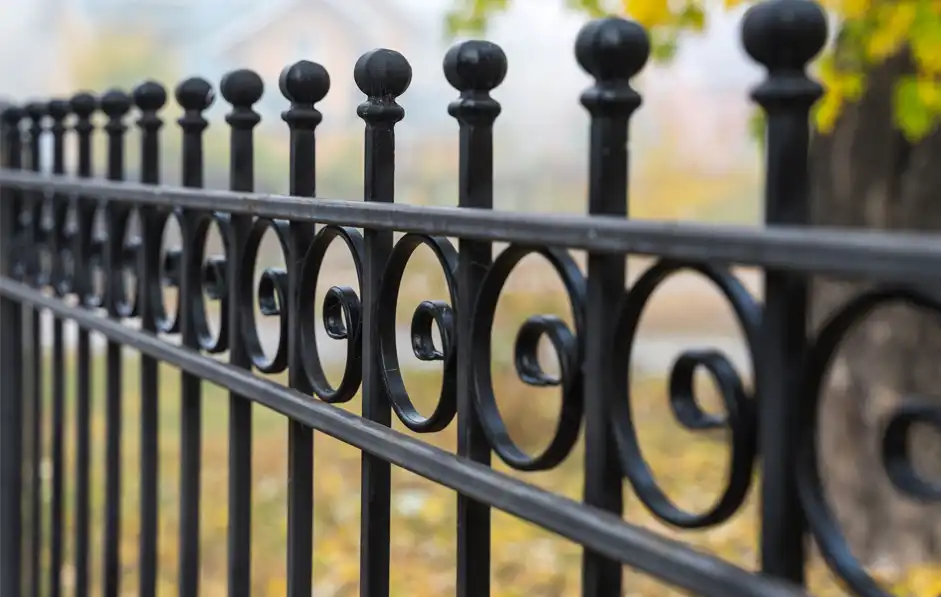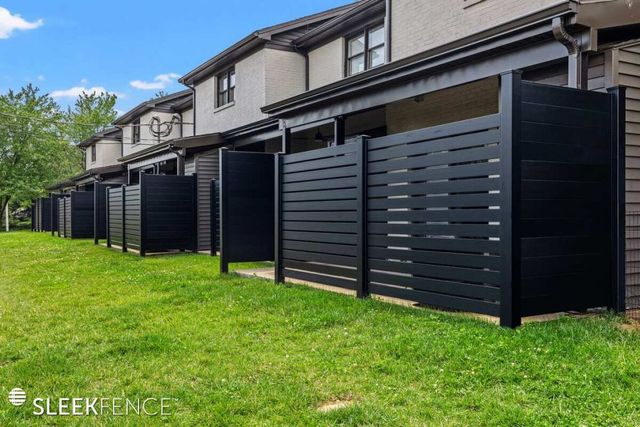All Categories
Featured
What Sorts Of Fence Materials Are Available for Residential and Commercial Projects?
Secure fencing is a functional and functional addition to any residential property, using protection, personal privacy, and aesthetic charm. Selecting the best product depends on the specific demands of your domestic or business job. Let's explore one of the most prominent fence materials and what makes each ideal for various applications.- Wood Fence. A perennial favored, wood fencing provides a timeless and natural look that matches numerous residential or commercial property types.
Advantages:
Flexibility: Offered in designs like split-rail, picket, and privacy fencings. Customizable: Can be tarnished or painted to match your style. Cost effective: An affordable choice for many home owners. Limitations: Regular upkeep is required to secure against rot, bending, and parasites.
- Plastic Fence. Vinyl has actually become a go-to option for those that want low-maintenance, sturdy fencing.
Benefits:

Weather Condition Resistant: Handles extreme temperatures and wetness without breaking down. Low Upkeep: No need for painting or discoloration; periodic cleaning is sufficient. Wide Range: Comes in various shades and appearances, including wood-like surfaces. Drawbacks: The upfront cost is greater, however long-lasting financial savings on maintenance can counter this.
- Chain-Link Secure fencing. Practical and economical, chain-link secure fencing is excellent for securing huge locations like commercial sites or play areas.
Advantages:
Price: Among the least pricey fence choices. Longevity: Immune to weather and physical damages. Personalized: Can include privacy slats or finishings for a refined look. Considerations: Offers limited privacy unless supplemented with added functions.
- Light weight aluminum Secure fencing. Recognized for its smooth and modern appearance, aluminum is a prominent selection for household and commercial buildings.
Key Features:
Rust-Free: A perfect option for damp environments. Lightweight: Easier to install contrasted to steel or iron. Attractive: Often utilized to duplicate the look of wrought iron. Limitations: Not as strong as steel, making it less ideal for high-security demands.
- Wrought Iron Fencing. Wrought iron incorporates elegance with stamina, making it a costs option for upscale homes.

Benefits:
Customizable Styles: Includes a sophisticated, one-of-a-kind touch to any building. Extraordinary Longevity: Stands the examination of time with proper upkeep. Security: Difficult to damage or breach. Obstacles: High cost and the demand for regular upkeep to avoid corrosion.
- Compound Secure fencing. Compound fence, made from a mix of wood fibers and plastic, is a green alternative with the appearance of all-natural wood.
Benefits:
Eco-Friendly: Typically made from recycled products. Toughness: Immune to weather, rot, and insect damage. Reduced Maintenance: Needs little maintenance compared to traditional timber. Disadvantages: Greater preliminary costs compared to basic timber fence.
- Steel Secure fencing. Steel fencing is a durable remedy for homes needing maximum safety.
Functions:

Durable: Withstands considerable physical and environmental stress. Adjustable Coatings: Powder finishing improves its resistance to rust. Security-Focused: Suitable for risky or commercial areas. Considerations: Heavier and a lot more pricey than light weight aluminum.
- Bamboo Secure fencing. For eco-conscious jobs, bamboo provides a lasting yet fashionable option.
Benefits:
Eco-friendly: Bamboo restores rapidly, making it renewable. Unique Aesthetic: Adds a natural, exotic touch to your residential or commercial property. Cost-Effective: Frequently less costly than hardwood options. Challenges: Less resilient in damp environments and may require therapies for durability.
- Stonework and Stone Fencing. For a really long-term option, stone or brick secure fencing gives unrivaled sturdiness and aesthetic charm.
Trick Features:
Toughness: Lasts for decades with marginal upkeep. Sound Reduction: Suitable for residential or commercial properties near hectic roads. Elegant Look: Creates a glamorous and magnificent look. Disadvantages: High installation expenses and limited versatility for adjustments.
Choosing the Right Fencing Product. When picking fence for your residential or commercial property, think about the list below aspects:
Function: Determine whether you prioritize personal privacy, safety, or aesthetic appeals. Budget: Some products, like wood and chain-link, are a lot more cost effective, while others, like stone or functioned iron, require a bigger financial investment. Maintenance Requirements: Materials like plastic and aluminum are low-maintenance, while wood and iron need more treatment. Neighborhood Environment: Select a product that withstands your area's weather. Conclusion. From the rustic charm of timber to the modern sophistication of light weight aluminum, there's a fence material for every commercial or domestic project. Each option uses distinct advantages, so comprehending your home's particular requirements will certainly assist guide your decision. Seek advice from an expert fence contractor to discover styles, materials, and installment alternatives to bring your vision to life.
Latest Posts
When to Tell When Your Car Needs Expert Auto Repair at Montclare Auto Repair
Published May 27, 25
1 min read
Discover Premier Car Repair Services offered by Montclare Auto Repair – Quality Service Today
Published May 26, 25
1 min read
Enhance Your Building with Expenses Door Solution
Published May 23, 25
1 min read
More
Latest Posts
When to Tell When Your Car Needs Expert Auto Repair at Montclare Auto Repair
Published May 27, 25
1 min read
Discover Premier Car Repair Services offered by Montclare Auto Repair – Quality Service Today
Published May 26, 25
1 min read
Enhance Your Building with Expenses Door Solution
Published May 23, 25
1 min read